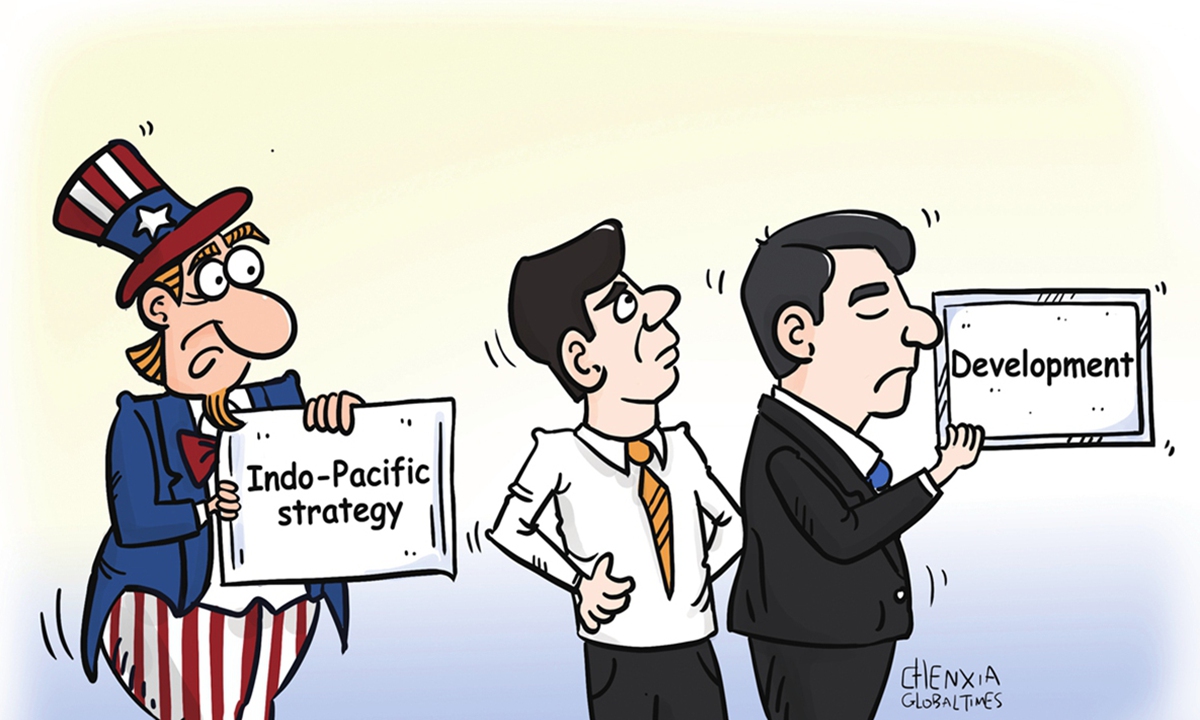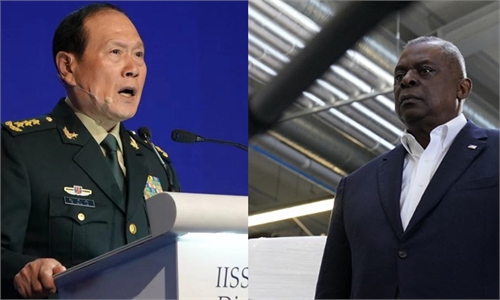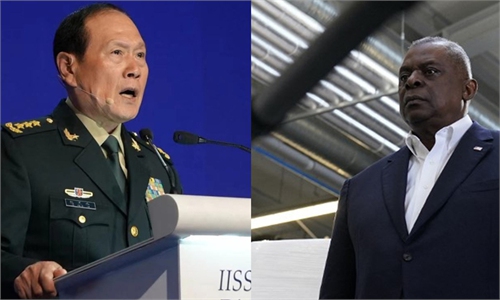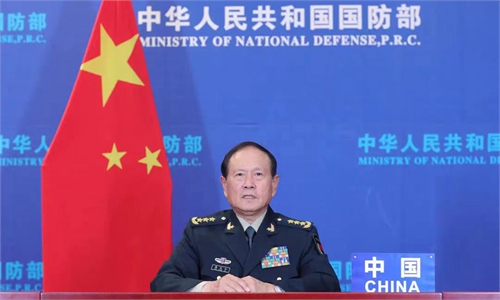US shouldn’t play tricks on hard-earned joint declaration: Global Times editorial

Illustration:Chen Xia/GT
The just-concluded ASEAN Defence Ministers' Meeting Plus passed a joint declaration themed on "strengthening solidarity for a harmonized security." In addition to the defense ministers of ASEAN countries, the defense chiefs and representatives of countries including China, the US and Russia also participated in this meeting. The joint declaration embodies the consensus of all participating countries to the greatest extent, especially ASEAN's collective attitude toward regional and international issues. In view of the current special atmosphere between China, the US and Russia, as well as the complicated and severe international situation, it is really commendable that the ASEAN Defence Ministers' Meeting Plus has been able to reach a joint declaration and focus on solidarity and cooperation. It is an important document and deserves attention.This declaration emphasizes the common security threats facing the region and the world, including traditional and non-traditional ones, while avoiding mentioning differences and disputes between specific countries. It reaffirms its commitment to promoting sustainable peace and security in the region and promoting practical cooperation among ASEAN member countries and relevant countries in the region. The joint declaration also specifically stated that every country has the right to lead its national existence without external interference, subversion or coercion, to refrain from interfering in each other's internal affairs, and to resolve disputes by peaceful means.
It's not difficult to see the declaration is in conformity with China's consistent principles, positions and diplomatic practices. This is not a result deliberately pursued, but reveals the same views shared by regional countries, including China, when facing challenges. It increasingly has a broad and solid public opinion base, and its strength is growing.
According to the principle of consensus, the joint declaration was also agreed by US Secretary of Defense Lloyd Austin. However, shortly after the adoption of the joint declaration, the Pentagon issued a readout. Although it reaffirms "the United States' commitment to working with ASEAN," almost the whole text emphasizes how to deal with "provocations and unsafe operational behavior, especially in the South China Sea." This is obviously putting "cooperation" under the general framework of "confrontation" and trying to turn "cooperation" into a tool for camp confrontation. It has a strong Cold War hue and is full of Washington's impulse to dominate regional affairs and attempt to marginalize the role of ASEAN.
Why does Washington want to play such a trick of "dual declaration?" This is because Washington knows that provoking is not welcomed in the collective discussion, and that it will only incite more vigilance and even resentment, which is not conducive to US' strategy of roping in Southeast Asian countries. Therefore, Washington had to settle for the second best, which is to act "soft" in front of others and "turn hostile" behind them. This also shows that the US is reluctant to agree to the joint declaration of the ADMM-Plus, and Austin failed to foist Washington's own needs into it.
In recent times, senior Washington officials have done a lot of "work" in Southeast Asia. Just before the ADMM-Plus, US Vice President Kamala Harris talked about "intimidation and coercion in the South China Sea" in the Philippines, but Philippine President Ferdinand Marcos Jr did not take up the thread of conversation. In a meeting with Indonesian Defense Minister Prabowo Subianto, Austin claimed that "the US is proud to partner with you." But Subianto politely responded, "Indonesia always takes the position of trying to maintain the best relationships with all nations, especially all the major powers." Cambodia, the host country of the ADMM-Plus, has also stressed the importance of multilateralism.
The US has done so much "work" and played so many tricks, but the actual outcomes are far from what it hoped for. This is not because Washington's senior officials did a "bad job." It is because the geopolitical strategy promoted by the US runs counter to the fundamental interests of Southeast Asian countries. The US cannot or never wants to make sufficient compensation. And its power is not enough to force regional nations to cooperate with its strategy unconditionally, leading to such an embarrassing situation. To some extent, it can be said that US' behavior in China's neighborhood, such as sowing discord, stirring up trouble, and aggravating the situation, have met a phased defeat.
In the last two years, seeing that it has not been able to "change" Beijing as it wants, Washington has devoted its main diplomatic resources to "shaping the environment around Beijing" and made all efforts in every fissure of China-related conflict and controversy. But it turns out that these moves from the US have proven unwelcome and unsuccessful in the Asia-Pacific region that focuses on cooperation. We want solidarity over division, justice over hegemony, openness over closed-mindedness, and mutual benefit over self-interests. This is not only China's just claim, but also the common wish of the international community. And it is far more attractive and worth pursuing to realize the beautiful vision of jointly building the South China Sea into a sea of peace, friendship, and cooperation than Washington's amplification and intensification of differences and disputes.



